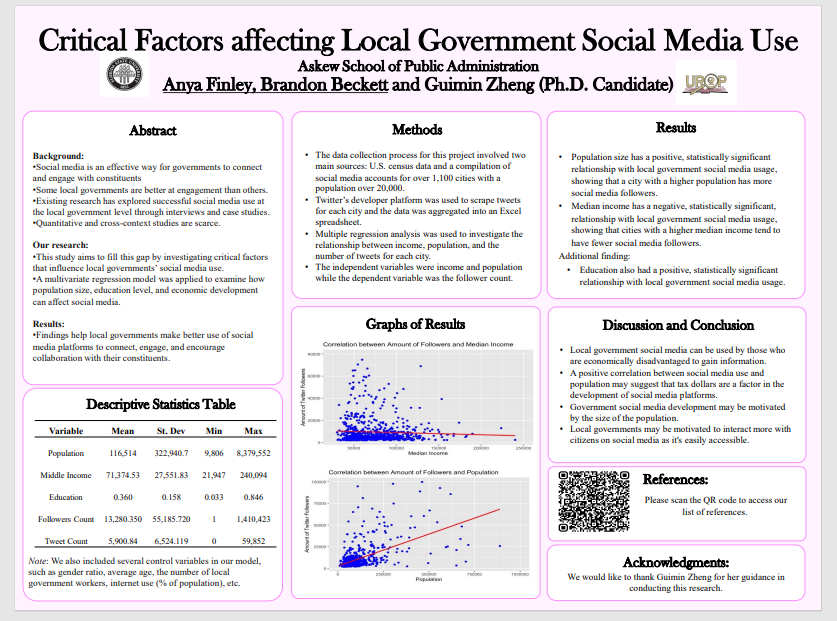Research Symposium
23rd annual Undergraduate Research Symposium, April 6, 2023
Anya Finley Poster Session 3: 2:45 pm - 3:45 pm/ Poster #196
BIO
Outside of the classroom, Anya is interested in a broad variety of research topics. As a student planning to attend law school, Anya's research interests primarily revolve around the legal system and policy and its intersection with various other topics, such as social media, ethics, religion, and philosophy. Aside from research, Anya is a competitor and tournament director for the Undergraduate Mock Trial Program and a writer and social media coordinator for the Undergraduate Law Review.
Critical Factors affecting Local Government Social Media Usage
Authors: Anya Finley, Guimin ZhengStudent Major: Double Major Political Science and Philosophy
Mentor: Guimin Zheng
Mentor's Department: Public Administration and Policy Mentor's College: Askew School of Public Administration and Policy Co-Presenters: Brandon Beckett
Abstract
Social media has long been recognized as an effective way for governments to connect and engage their constituents. However, the success of local government social media accounts in engaging citizens varies. Existing research has explored successful social media use at the local government level through interviews and case studies, but quantitative and cross-context studies are scarce. This study aims to fill this gap by empirically investigating what critical factors influence local governments’ social media use and its reception by citizens. Relying on a novel city-level dataset that includes features from over 1,100 verified city Twitter accounts, as well as the institutional and demographic information, we apply a multivariate regression model to examine how population size, education level, and economic development can play an important role. Our preliminary results show that cities with larger population size and higher educated citizens tend to have more followers and publish more tweets. These relationships are statistically significant and consistent with our expectations. However, we also found that median household income has a significant but negative effect on the number of city Twitter followers, indicating that low-income citizens are more likely to follow city social media accounts. This might suggest that social media has provided a new and convenient channel for low-income groups who lack the economic or political capital to connect with governments in traditional ways. Our findings help local governments make better use of social media platforms in this digital era to connect, engage, and encourage collaboration with their constituents.
Keywords: social media, government, citizen engagement


